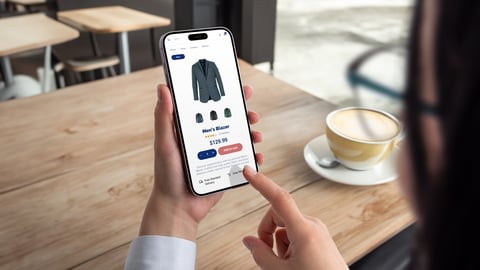Loss prevention efforts pose issues for shoppers, associates
Retailers' efforts to combat in-store theft and crime may have unintended consequences.
According to the Zebra 17th Annual Global Shopper Study (which also surveyed retail associates and decision-makers), 78% of surveyed consumers say it’s annoying when products are locked up or secured within cases. Also, 77% are concerned retailers may raise prices to cover the cost of increasing theft and crime. And 71% are concerned the stores at which they shop are experiencing high levels of theft and crime.
In other findings, 70% say it’s hard to find an associate while shopping in stores. And one in five consumer respondents who left a store without getting what they needed say it’s because a retail associate wasn’t available to help, an increase during the past two years.
Fewer consumer respondents overall are satisfied with their shopping experiences this year than last year. In 2024, 81% are satisfied with the in-store experience and 79% with online shopping, while in 2023 85% were satisfied with both the in-store and online experiences.
And while the majority (78%) of consumers say self-checkout options improve their shopping experience, 68% say self-checkout lanes are lacking. Some report they have left a store without making a purchase because there were no self-checkout or contactless payment options.
Store associate findings
The survey also asked store associates about their views on customer experience and loss prevention:
- Nearly 90% of associate respondents believe they can provide a better customer experience when they have mobile technology tools to help simplify real-time communication and prioritize tasks as well as check prices and inventory.
- Most associate respondents (85%) feel strongly that their store needs more associates. Surveyed associates also generally believe stores that leverage retail technology and mobile devices attract and retain more associates, and shoppers have a better experience when associates use the latest technology to assist them.
- 82% say it’s difficult for them to find help or ask for timely support when needed.
- Eight-in-10 are concerned about the lack of technology deployed to spot safety threats or criminal activity.
[READ MORE: Study: Understaffing, lack of anti-theft tech make retail workers feel unsafe heading into holidays]
Retail decision-maker findings
Close to eight-in-10 (78%) retail decision-maker respondents say they are under high pressure to minimize theft and loss, and are now investing in technology tools to assist. They currently view artificial intelligence technologies as the most helpful with loss prevention, closely followed by cameras, sensors and RFID.
While only 38% of retailer decision-maker respondents currently use AI-based prescriptive analytics for loss prevention, 50% say they plan to use it in the next one-to-three years for this purpose.
More than four-in-10 say they also plan to use computer vision (46%), self-checkout cameras and sensors (45%), and RFID tags and readers (42%) within the next three years, specifically for loss prevention.
Most retailers agree technology enables associates to do their jobs better, and as a result, 75% of retailers say they plan to increase their technology investments in 2025. Almost four-in-10 (39%) believe generative AI will have an extremely significant impact on inventory management and demand forecasting.
They will also be automating product locating and item-level RFID (46%), video monitoring (45%) and stock-out alerts (45%) to give associates and shoppers real-time inventory visibility.
"Many retailers are laying the groundwork to build a modern store experience," said Matt Guiste, global retail technology strategist, Zebra Technologies. "They are investing in mobile and intelligent automation technologies to help inform operational decisions and enable associates to do the things that keep shoppers happy."
Zebra Technologies commissioned a global research study among more than 4,200 adult shoppers (age 18 and up), decision-makers, administered online by Azure Knowledge Corporation.




